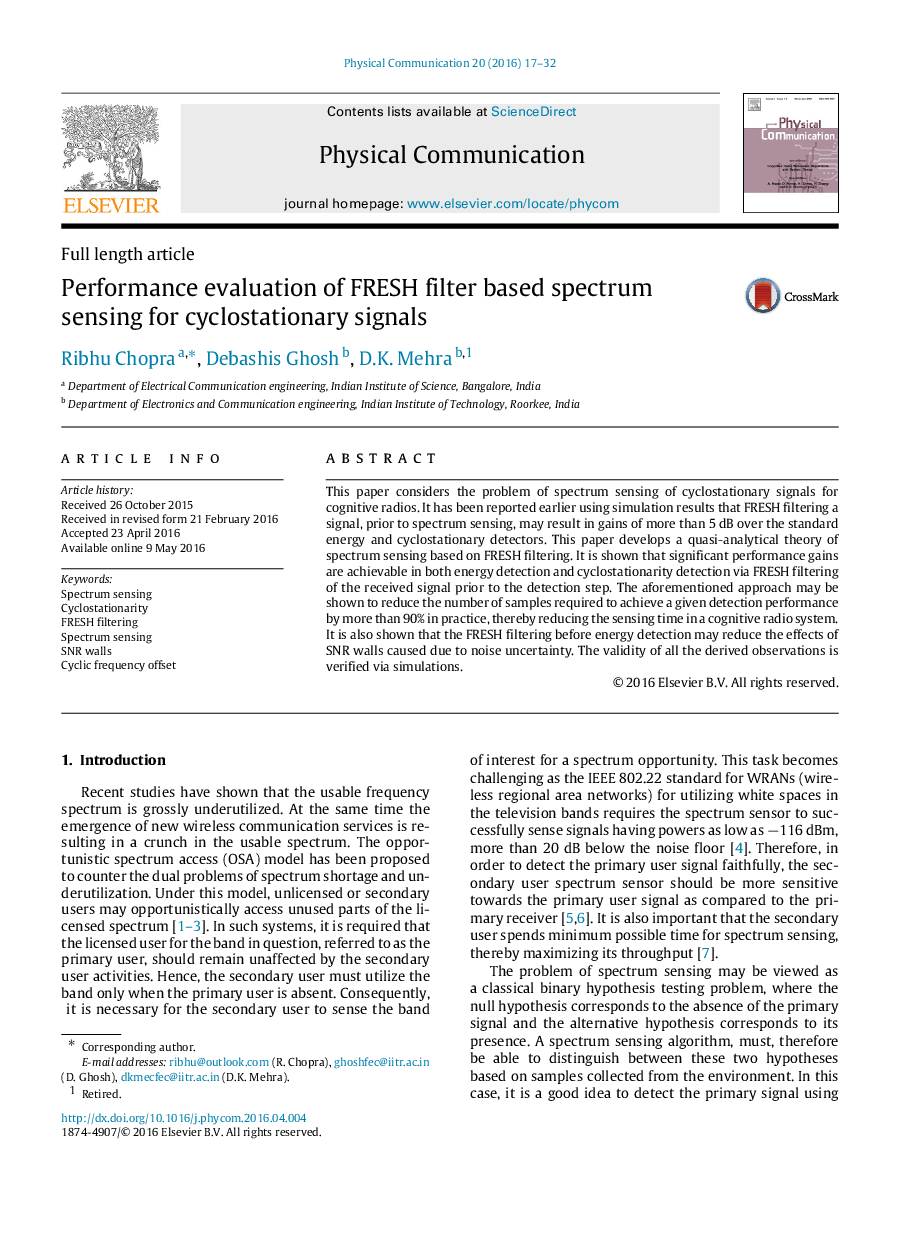| Article ID | Journal | Published Year | Pages | File Type |
|---|---|---|---|---|
| 466260 | Physical Communication | 2016 | 16 Pages |
This paper considers the problem of spectrum sensing of cyclostationary signals for cognitive radios. It has been reported earlier using simulation results that FRESH filtering a signal, prior to spectrum sensing, may result in gains of more than 5 dB over the standard energy and cyclostationary detectors. This paper develops a quasi-analytical theory of spectrum sensing based on FRESH filtering. It is shown that significant performance gains are achievable in both energy detection and cyclostationarity detection via FRESH filtering of the received signal prior to the detection step. The aforementioned approach may be shown to reduce the number of samples required to achieve a given detection performance by more than 90% in practice, thereby reducing the sensing time in a cognitive radio system. It is also shown that the FRESH filtering before energy detection may reduce the effects of SNR walls caused due to noise uncertainty. The validity of all the derived observations is verified via simulations.
